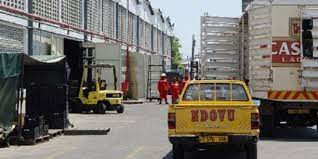Sh 96 billion will reportedly be set aside for the construction of the Tanzania Breweries Kilimanjaro Malting Plant in Moshi. This was revealed by Tanzania Breweries Limited (TBL).
The project according to TBL will be implemented in two phases: phase one between 2023 and 2024, and phase two between 2024 and 2025. Phase one inaugurates with an initial investment of $10.5 million for the production of 12000 Metric tonnes (MT). Moreover, this phase targets to boost local production capacity and pioneer the initial construction and upgrading of malting facilities.
The second phase will scale up the project’s capacity to 16000 MT with a total investment of $6.3 million. Additionally, this phase will complete the project and deliver the plant utilization of the excise code on locally malted barley.
TBL’s Country Director, Jose Moran, reported: “The total capital expenditure in the revamping of the Tanzania Breweries Kilimanjaro Malting Plant in Moshi is expected to be Sh96 billion, with Tsh42 billion injected in the first phase. Overall, through this investment, the plant will broaden the contribution of manufacturing and local agriculture to the economy of Tanzania.”
Additionally, the Ministry is working with farmers to advance their harvesting and storage techniques and promote the formation of agro-processing industries.
Also Read: Tanzania Plans Construction of Grain Silos in Mombasa
Expectations of the Tanzania Breweries Kilimanjaro Malting Plant in Moshi
The plant is expected to inject an additional Tsh 226 billion into the revenue of Tanzania. This will be achieved through an expanded value chain across agriculture, malting, brewing, packaging, distribution, logistics, and retail. Additionally, the construction of the malting facility will increase the revenue collected.
This investment could not have been made possible without the government’s support in creating an enabling environment; as such, it aligns with the government’s priorities, including the boosting of agricultural production, the support of local manufacturing, employment and sustainable livelihoods, and the expansion of trade.

